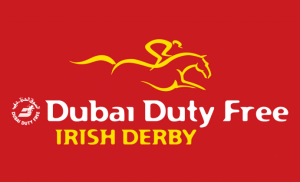The Champion Stakes is a group 1 event first taking place in 1877. It’s well up there as a flat race that draws immense excitement and competition each and every year. At a distance of 1 mile and 2 furlongs at Ascot racecourse, the Champion Stakes takes place in October, on British Champion’s Day. This fact alone informs you on the quality of the event.
In fact, so respected is the race that for a period of time the Champion Stakes was part of the Breeder’s Cup Challenge series which encompasses races held around the world (the US, Canada, South America, South Africa, Europe, Japan and Australia) with the prize of automatic entry into a Breeder’s Cup race.
The Champion Stakes was originally held at Newmarket, and moved to Ascot in 2011 to become part of the aforementioned Champion’s Day at Ascot. Understandably with such a stellar reputation, the race comes with a healthy prize pot. In fact the £1.3m purse for the race is said to be ‘the most valuable mile and a quarter race in Europe’. It’s the final race of the British Champion’s Series Middle Distance category and attracts the best of the best of middle distance runner.
The reputation of the race is second to none and that shows in the trainers that have this on their target list. No better illustration can be given than highlighting the fact that Frankel, ridden by Tom Queally, won the race for Sir Henry Cecil in 2012. It was the 14th straight win of Frankel’s career and in fact his final race.
This isn’t Tom Queally’s sole success at the event either, with wins on Twice Over (aptly twice!) in 2009 and 2010. The 2018 winner of the Champion Stakes was Cracksman, ridden by Frankie Dettori and trained by John Gosden. Prize money for first place is currently £737,230 .
 The Irish Derby is an Group 1 race held over a 1 mile 4 furling course. It’s a flat race open to both three year old colts and fillies. While there have been prior versions of the Derby going back to 1817, the modern day event has been declared to have first taken place in 1866 in Curragh, Co Kindare, Ireland.
The Irish Derby is an Group 1 race held over a 1 mile 4 furling course. It’s a flat race open to both three year old colts and fillies. While there have been prior versions of the Derby going back to 1817, the modern day event has been declared to have first taken place in 1866 in Curragh, Co Kindare, Ireland.